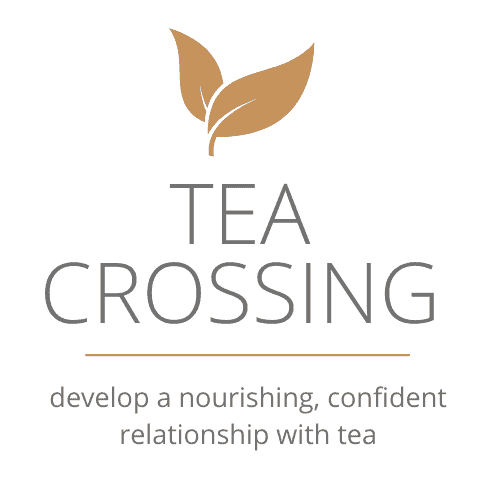Many people are wondering how much sugar is in kombucha these days. After all, with the popularity of the drink soaring, it’s no wonder that people are curious about how healthy it is. Let’s take a closer look at how much sugar is in this drink and what that means for your health.
On average, kombucha contains about 3-4 grams of sugar per cup (240 ml). Most commercial kombuchas contain around 2-3 grams of sugar per serving. This is significantly less sugar than what’s found in sodas and other sugary drinks. It contains about the same amount of sugar as a cup of green tea.
So, What Does This Mean For Your Health?
While the drink does contain sugar, it’s important to remember that the sugar content is relatively low.
Additionally, kombucha is packed with probiotics, which are beneficial for gut health. Probiotics have been shown to improve digestion, boost immunity, and even help with weight loss.
Overall, kombucha is a healthy beverage choice. It’s low in sugar and contains probiotics that can benefit your health. If you’re looking for a delicious and healthy drink, kombucha is a great option.
What Determines The Level Of Sugar
The sugar level in it is determined by how long it ferments. The longer it ferments, the less sugar it will have. Kombucha is made from fermented sweet tea. The sugar in the sweet tea is what feeds the bacteria and yeast, which in turn produce the drink.

During fermentation, the bacteria and yeast consume the sugar and convert it into alcohol and organic acids. This process reduces the sugar content of the kombucha.
The final sugar content of kombucha can range from 1-3% (w/v), with the average being 1.5% (w/v). This means that there are about 15 grams of sugar per liter of kombucha. For comparison, a can of soda typically contains 40 grams of sugar.
How The Recipe Determines The Level Of Sugar
The kombucha recipe is what determines how much sugar is in kombucha. The fermentation process of kombucha consumes the majority of the sugar, so the final product has very little.
However, the sugar content will vary depending on how sweet the tea is to start with. For example, if you use black tea and add a lot of sugar, there will be more sugar left in the kombucha when it’s finished fermenting. If you use green tea and add only a little bit of sugar, there will be less sugar left in the kombucha.
You may also like to know how much caffeine is in kombucha
In general, though, kombucha contains very little sugar compared to other drinks – even other fermented drinks like beer or wine. This is because the fermentation process consumes most of the sugar, leaving behind only a small amount. It also has many health benefits, which make it a great choice for those looking to cut down on their sugar intake.
So, How Much Sugar Should You Be Consuming In A Day?
While it does contain some sugar, the fermentation process also creates enzymes that break down the sugars into lactic acid, which has probiotic benefits. Kombucha also contains vitamins B1, B6, and B12, as well as amino acids and organic acids that can help boost your immune system.
Women should consume no more than six teaspoons (25 grams) of added sugar per day, while men should consume nine teaspoons (25 grams) per day, according to the American Heart Association (38 grams). When compared to other sugary drinks like soda, kombucha has only about four grams of sugar per cup (237 ml).
If you’re looking to cut back on your sugar intake, there are a few things you can do. You can make your kombucha at home using a lower sugar black tea, or look for brands that use alternative sweeteners like stevia or monk fruit. You can also add kombucha to smoothies or cocktails for a probiotic boost without the added sugar.
Is The Sugar In Kombucha Bad For Me?
There is no right answer to this question as everyone’s body reacts differently to sugar. However, too much sugar can be bad for your health, so I will advise that you remain aware of how much sugar is in kombucha and how much you are drinking.

Kombucha is a low-sugar drink, but it’s important to remember that it is still a fermented food. This means that it contains live bacteria and yeast, which can cause bloating and gas in some people. If you are sensitive to fermentation, you may want to start with a small amount of kombucha and increase your intake slowly.
Overall, kombucha is a healthy beverage choice. It’s low in sugar and contains probiotics that can benefit your health. If you’re looking for a delicious and healthy drink, kombucha is a great option.
You should also check out my article on the alcohol content of kombucha
It Is Beneficial
While it does contain some sugar, kombucha also contains beneficial probiotics and acids that can help promote gut health. Some kombuchas may have less sugar, while others may have more.
It’s important to note that the sugar content in kombucha is not entirely from refined sugars. Much of the sugar comes from the naturally occurring sugars in the tea leaves and fruits that are used to make kombucha. Many of the health benefits of kombucha are actually due to the probiotics and acids, rather than the sugar content.
So, if you’re looking for a probiotic-rich drink that doesn’t contain a lot of sugar, kombucha may be a good option for you. Just be sure to check the labels to see how much sugar is in each serving.
Final Thoughts
The amount of sugar in kombucha varies depending on the recipe and how long it is fermented, but it is generally lower in sugar than other types of fermented beverages like beer or wine. This can be a healthy addition to your diet, but be sure to check the labels to determine the sugar content before you drink it.

